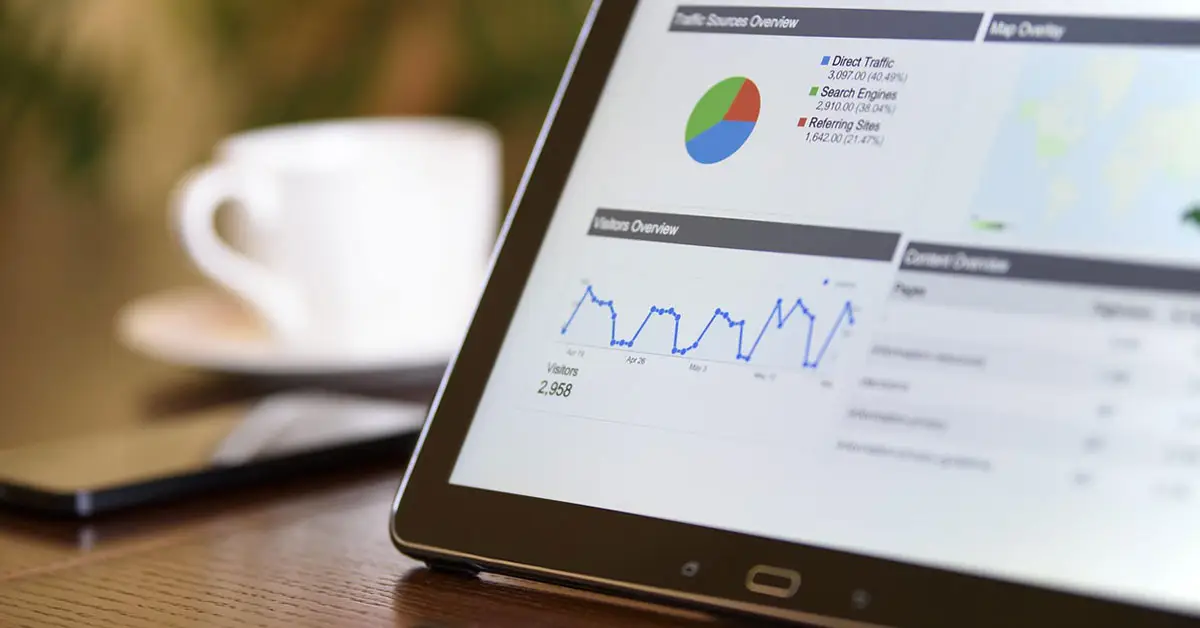For a small business, getting noticed online can feel difficult. You may have a good website, but if people cannot find it in search results, it does not bring you customers. Search Engine Optimization (SEO) helps solve this problem, but SEO works best when it is guided by facts. This is where data analytics comes in. By looking at numbers, patterns, and reports from different tools, you can understand what works on your website and what needs to be improved.
This article explains step by step how to use data analytics to refine your SEO strategy. It is written in simple words so that even if you are not an expert, you can follow along and apply it to your small business.
What is Data Analytics in SEO?
Data analytics in SEO means collecting and studying information about how your website performs in search engines and how people use it. Instead of guessing what works, you use real numbers to make decisions. For example, you can check how many people visit your site, how long they stay, what keywords bring them there, and which pages they read the most.
For a small business, this is important because it tells you what is helping customers find you online and what might be making them leave. If you see that a blog post is bringing in more visitors, you can create more content like that. If a page has a high bounce rate, you may need to improve the content or make it easier to read.
Why Data Analytics Matters in SEO
SEO is not just about adding keywords or writing blog posts. It is about making your website useful for both search engines and people. But without tracking your results, you are only guessing. Data analytics removes the guesswork.
- It shows where your visitors are coming from.
- It explains which pages bring in the most clicks.
- It highlights problems such as high bounce rates (people leaving quickly).
- It helps you see if your SEO changes are improving results or not.
In short, data analytics tells you the truth about your SEO performance. This saves you time and money because you can focus only on what actually works.
Set Clear SEO Goals Before Using Data
Before you start analyzing data, you need to know what you want to achieve. Otherwise, you will collect numbers but not know what they mean. Some common SEO goals for small businesses include:
- Getting more local visitors from search engines.
- Ranking higher for product or service keywords.
- Increasing calls, form submissions, or online orders.
- Improving the amount of time people spend on your site.
Once you set goals, you can track them through data. For example, if your goal is to increase online orders, you can measure how many visitors from Google search actually buy something.
Collect SEO Data Using the Right Tools
To refine your SEO strategy, you need reliable tools that track performance. The most important ones are:
Google Analytics
This free tool tracks how people interact with your website. You can see:
- Which pages get the most traffic.
- How long people stay on your site.
- Which devices (mobile or desktop) they use.
- How many conversions (sales, sign-ups, etc.) happen.
Google Search Console
This tool tells you how your site appears in search results. It shows:
- What keywords people use to find your site.
- How often your site shows up (impressions) and gets clicks.
- Errors such as broken pages or mobile usability issues.
Keyword Research Tools (like Ahrefs, SEMrush, or Ubersuggest)
These tools show keyword rankings, competition levels, and opportunities to target new keywords.
Heatmaps and Session Recording Tools (like Hotjar or Microsoft Clarity)
These tools let you see how visitors move through your site, where they click, and what they ignore.
Analyze Website Traffic Data
Traffic data shows how many people visit your site and how they get there. Important points to check:
- Organic vs. Other Sources: Look at how much traffic comes from search engines compared to social media, paid ads, or direct visits. If organic traffic is low, your SEO strategy needs improvement.
- New vs. Returning Visitors: If most visitors are new but not returning, it may mean your content is not engaging enough.
- Geographic Data: For small businesses, local SEO is important. If your visitors are from other countries or cities, your targeting may be wrong.
By tracking this data, you can adjust your SEO to bring in the right audience.
Track Keyword Performance
Keywords are the foundation of SEO. You should regularly check how your keywords perform.
- Ranking Positions: Are your chosen keywords moving up or down in search results?
- Click-Through Rate (CTR): Even if a page shows up in results, are people clicking it?
- Keyword Intent: Do the keywords match what customers want? For example, if someone searches “buy shoes online,” they are ready to purchase. If they search “what shoes are best for walking,” they want information first.
Use Google Search Console to find which keywords bring traffic and which ones you should target more.
Measure User Engagement on Your Site
Search engines want to show results that people find useful. If visitors leave your site quickly, it sends a negative signal. Data analytics helps measure user engagement through:
- Bounce Rate: The percentage of people who leave after visiting just one page.
- Average Session Duration: How long people stay on your site.
- Pages per Session: The number of pages visitors look at before leaving.
If these numbers are poor, it means your content may not match what people expect, or your site is hard to use.
How to Analyze SEO Data
Collecting data is only the first step. The real benefit comes when you study it and make useful changes. By breaking down the numbers into smaller parts, you can see what drives results and what needs improvement. Here are some key areas to focus on when analyzing SEO data:
Look at Traffic Sources
Check where your visitors are coming from search engines, social media, or referral links. If search traffic is strong, keep improving keywords. If social media is weak, spend more time sharing posts or ads. Knowing the main traffic source helps you focus your efforts on what brings the best results.
Check Keyword Rankings
Track keyword rankings regularly to see if your content is improving in search results. A rise in ranking shows your strategy is working, while a drop may signal the need for adjustments. Monitoring keyword performance helps you stay on top of changes and adjust before losing visibility.
Watch Bounce Rate and Dwell Time
Bounce rate shows how quickly people leave your site, while dwell time shows how long they stay. A high bounce rate or short dwell time means your content may not meet user expectations. Improving page layout, speed, or content quality can encourage visitors to stay longer and interact more.
Track Conversions
Traffic is important, but conversions matter most. Conversions include actions like purchases, form submissions, or newsletter signups. Studying conversion data helps you know if your SEO is bringing in the right audience. Even if traffic grows, low conversions mean you should improve calls to action or landing page design.
Study Trends Over Time
One week of data doesn’t show the full picture. Look at performance across months or even years to see patterns. Long-term tracking helps identify what consistently works. For example, you may find seasonal traffic spikes or steady keyword growth. This broader view ensures smarter decisions for lasting SEO success.
Common SEO Mistakes Small Businesses Make
Even with analytics, many small businesses fall into common traps that limit their growth. Understanding these mistakes can save time and improve results.
Ignoring Mobile Visitors
Most people use their phones to search online. If your website is not mobile-friendly, visitors may leave quickly, and search engines may rank your site lower. A responsive design and fast loading pages are key for keeping mobile users engaged.
Keyword Stuffing
Some businesses think adding the same keyword many times will improve rankings. Instead, it makes the content hard to read and looks unnatural. Search engines can also penalize sites for this. It’s better to use keywords naturally while focusing on helpful content.
Not Setting Goals
Without clear goals, you cannot measure success. For example, a goal might be to grow website visits by 20% in three months or increase newsletter signups. Goals guide your efforts and help you track if your SEO work is giving results.
Forgetting Local SEO
Many small businesses depend on nearby customers. Ignoring local SEO means missing out on valuable leads. Adding your business to Google Maps, using local keywords, and checking analytics for local searches can help you appear when people nearby look for your services.
Focusing Only on Traffic
More visitors do not always mean better results. A website with high traffic but few sales or inquiries is not successful. Instead of focusing only on traffic, track conversions such as purchases, calls, or signups. Analytics can show which pages bring real business.
Final Word
Data analytics may sound complex, but it is simply a way to check if your SEO is working. By setting goals, collecting data, and analyzing results, you can refine your strategy step by step. Instead of guessing, you use facts to decide what to improve. For a small business, this can make the difference between a website that gets ignored and one that brings steady customers. Start small, focus on the most important data, and over time, you will see clear growth in both search rankings and business results.
References
- https://marketinginsidergroup.com/search-marketing/how-to-use-data-analytics-to-refine-your-seo-strategy/
- https://aioseo.com/simple-guide-to-seo-analytics/
- https://www.o8.agency/blog/data-driven/unlock-the-secrets-of-data-driven-seo
- https://www.datasciencesociety.net/how-to-use-data-analytics-to-fine-tune-your-local-marketing-strategy/
- https://improvado.io/blog/seo-analytics-guide
- https://movedigitalgroup.com/blog/digital-marketing/small-business-data-analytics/
- https://aicontentfy.com/en/blog/how-to-use-analytics-and-data-to-measure-and-enhance-seo
- https://www.activemarketing.com/blog/search-engine-optimization/the-ultimate-guide-to-search-engine-optimization-for-small-businesses/
- https://www.score.org/seminnesota/resource/article/small-businesses-can-use-digital-analytics-improve-their-marketing
- https://futureproofdigital.ie/shorts/analytics-for-small-businesses/





















Add comment